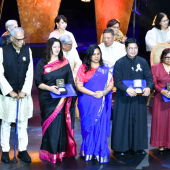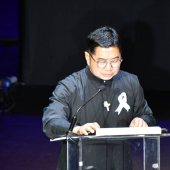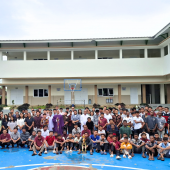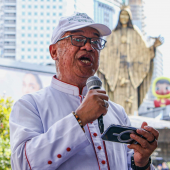Magsaysay Awardee Safeena Husain: ‘Even Today, We Can Send Rovers to Mars, But Not All Girls to School’
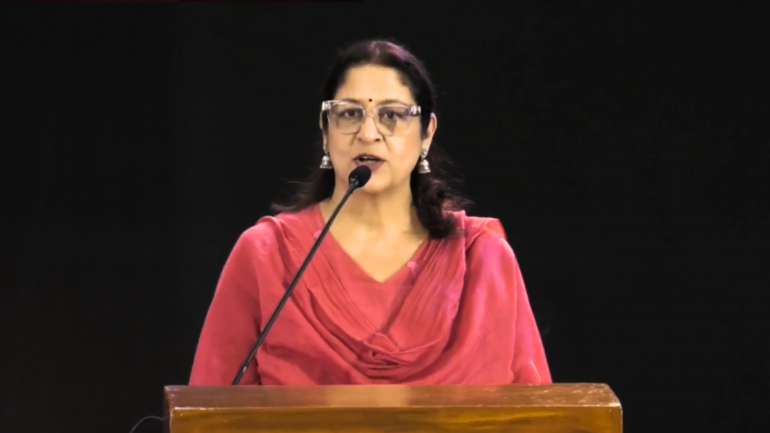
Safeena Husain, founder of India’s Educate Girls and one of this year’s Ramon Magsaysay Awardees, delivered a stirring lecture on November 4 at the Ramon Magsaysay Center in Manila, Philippines, calling on Asia and the world to ensure that every girl receives the education she deserves.
“Even today, mankind can send rovers to Mars, and yet we cannot send all girls to school,” Husain told the audience at the Ramon Magsaysay Center.
Her words captured both the urgency and moral force of her message: that the denial of education to millions of girls is not only a social injustice but also a human tragedy that can be changed through community action and compassion.
Founded in 2007, Educate Girls works in India’s most underserved communities, where poverty, discrimination, and distance often keep girls from classrooms. By mobilizing local volunteers, parents, and village leaders, the group identifies girls who are out of school and helps them enroll, stay, and succeed.
The organization now operates in more than 30,000 villages across India and is supported by 55,000 community volunteers known as Team Balika. Their work has brought over two million girls back to school and improved learning outcomes for 2.4 million children.
Husain said that despite global progress, 133 million girls worldwide remain out of school, a number roughly equal to the population of the Philippines. In India, she noted, girls without education are 16 times more likely to marry before age 18, while nearly 80 percent of women remain unskilled and only 42 percent participate in the labor force.
“When a girl drops out of school, she’s more likely to marry early, give birth early, and face higher risks of violence and poverty,” she said. “When a girl loses education, she loses her voice and agency. And when that happens, a whole community loses progress.”
Husain described patriarchy as a mindset that “has remarkable stamina” and continues to value sons over daughters, especially in rural areas.
“It’s a mindset where a goat is seen as an asset and a girl as a liability,” she said.
To expand its reach, Educate Girls has embraced technology, using artificial intelligence and advanced data analytics to identify areas where out-of-school girls are most concentrated.
“We found that just five percent of India’s villages account for 40 percent of the problem,” Husain said. “That insight changed everything.”
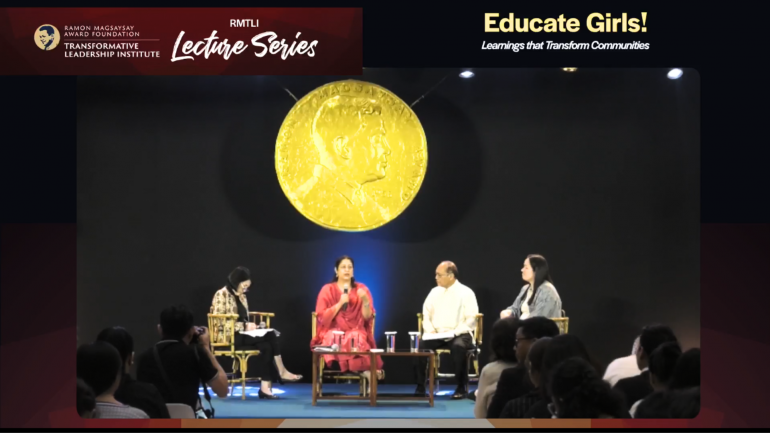
The combination of AI and grassroots mobilization has allowed the organization to scale quickly and efficiently. Its “second-chance” program also supports young women who were unable to complete formal schooling, helping them finish their secondary education while learning digital and financial skills.
“These young women are reclaiming their confidence,” Husain said. “Education gives them choices, independence, and freedom.”
In her lecture, she shared the story of Shobha, a nine-year-old girl from Rajasthan who once waited outside her brother’s classroom because her father refused to let her study. After being enrolled through Educate Girls, Shobha completed her education and became a community nurse, caring for mothers and newborns in the same villages that once shut her out.
“Her father now tells others that everyone should go to school,” Husain said, smiling. “That’s the change we dream of, not just a girl educated, but a father transformed.”
She also spoke of Nagina Bano, a child bride who used education to rebuild her life and now serves as a volunteer championing girls’ rights.
“My education is the only thing that is truly mine,” Bano once told Husain. “No one can beat it out of me, no one can steal it. No flood, no famine can take it away. My education will be with me till my dying day.”
Ramon Magsaysay Award Foundation President Susan Afan said Educate Girls embodies the award’s ideals of selfless leadership and transformative service.
“They work hand in hand with local volunteers to bring girls back to classrooms with the belief that girls deserve more,” Afan said. “They deserve to learn, to grow, to lead, and to become fulfilled human beings.”
Closing her lecture, Husain reminded the audience that educating girls is not a favor but a fundamental right, one that benefits entire societies.
“The World Bank says that girls’ education can positively impact nine out of the 17 Sustainable Development Goals, from poverty to climate change,” she said. “But beyond all those reasons, there is only one that truly matters: we must do it because it’s right.”
Radio Veritas Asia (RVA), a media platform of the Catholic Church, aims to share Christ. RVA started in 1969 as a continental Catholic radio station to serve Asian countries in their respective local language, thus earning the tag “the Voice of Asian Christianity.” Responding to the emerging context, RVA embraced media platforms to connect with the global Asian audience via its 21 language websites and various social media platforms.









